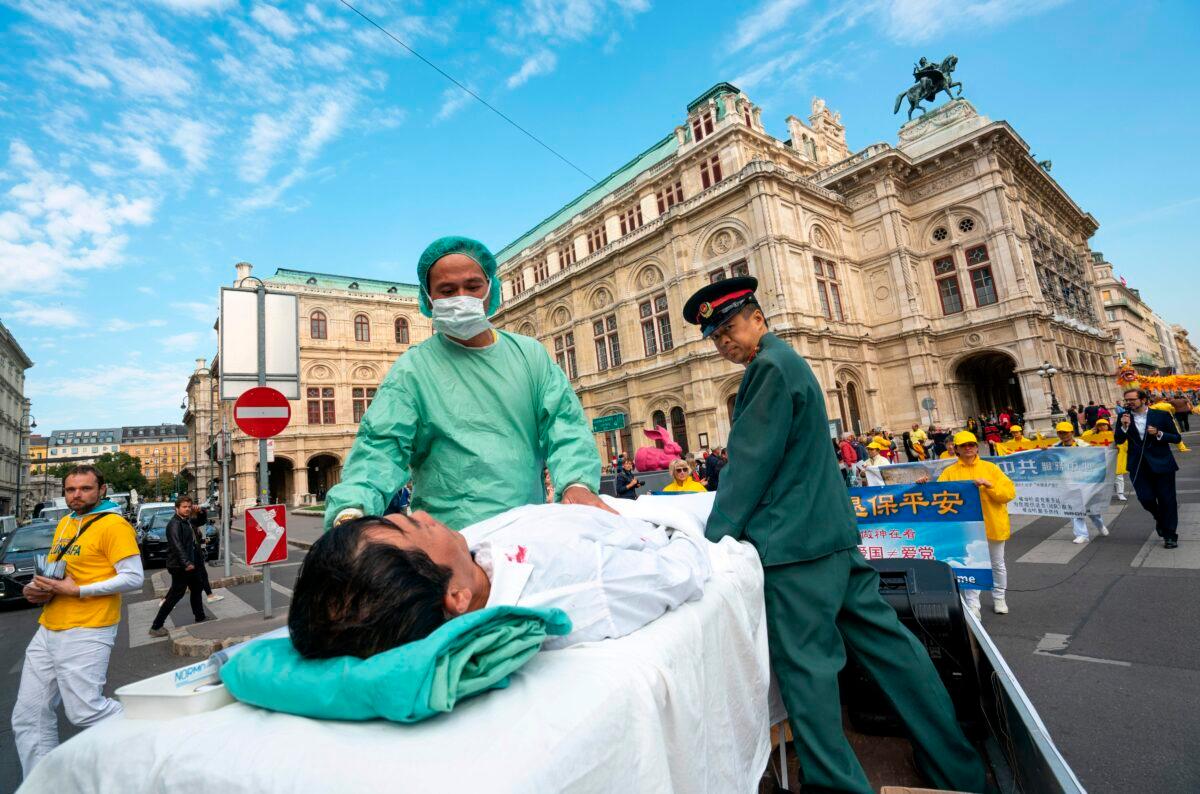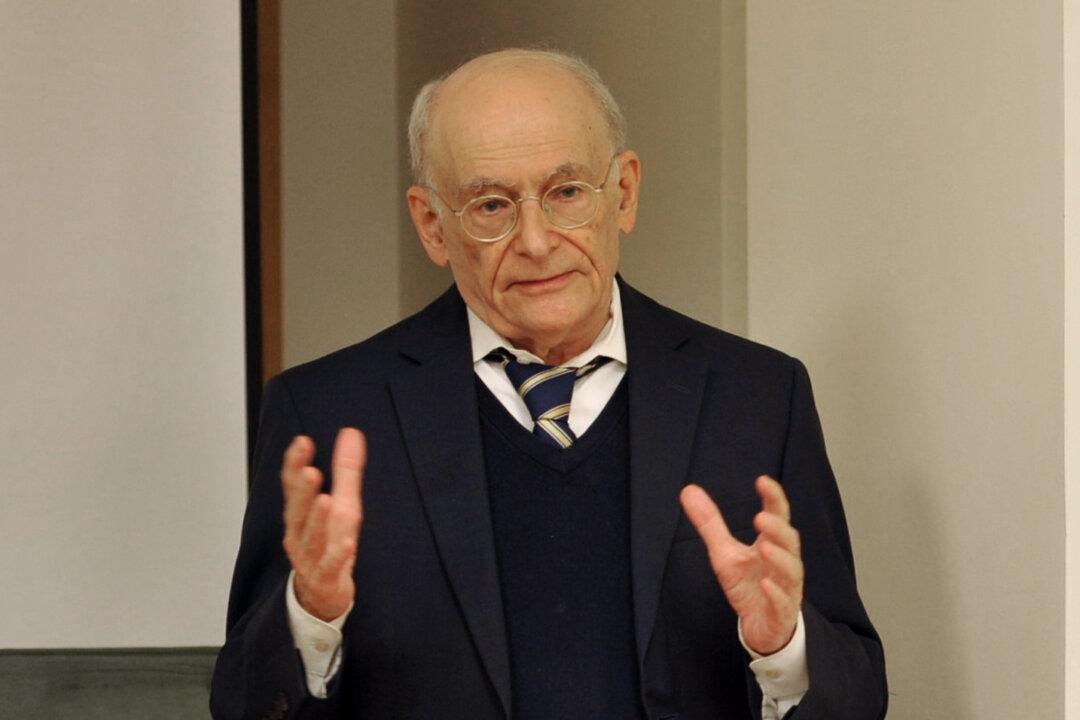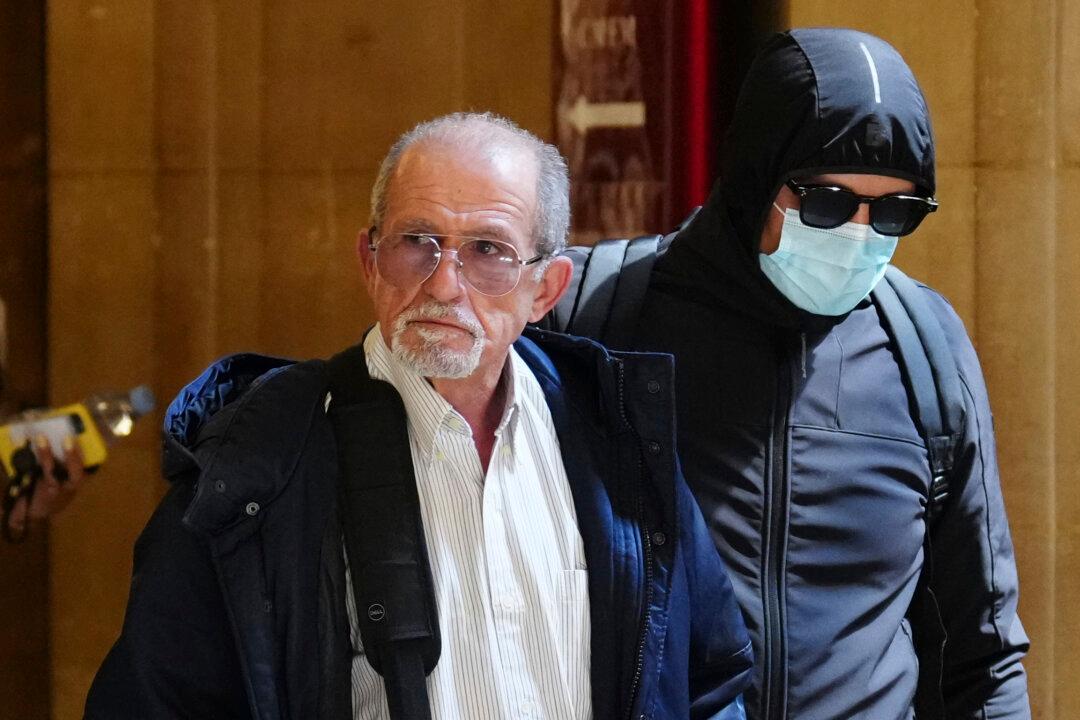International human rights lawyer David Matas addressed members of the Latvian Parliament on Aug. 23 about China’s state-sanction program of forced organ harvesting, which has been ongoing for decades.
In his presentation, Mr. Matas said China’s ruling communist regime has used this crime against humanity as part of a “cold genocide” targeting adherents of Falun Gong, a spiritual practice in the Buddhist tradition.
According to Mr. Matas, large-scale killing for organ pillaging began in the early 2000s, a few years after the persecution against Falun Gong—then practiced by an estimated 100 million Chinese—was launched in 1999.
“The evidence—over the decades now—has mounted considerably,” Mr. Matas said, identifying four categories.
The first category are testimonies of persecuted Falun Gong practitioners who escaped China and reported being medically tested when other prisoners were not.
“It’s not being done for their health,” Mr. Matas explained, “because they are tortured to recant their beliefs.”
Secondly, there is an unusually high volume of organ transplants in China—a number that jumped way up after the persecution of Falun Gong began.
“There’s no explanation for this volume other than the mass killing of prisoners of conscience,” he stated. The short waiting times for organ transplants in Chinese hospitals are another phenomenon that cannot be explained otherwise, he added.
Lastly, investigators have collected numerous transcripts of conversations with hospitals that blatantly admit to providing “Falun Gong organs”—considered superior as Falun Gong practitioners observe a healthy lifestyle abstaining from drugs and alcohol.
Cold Genocide
Mr. Matas explained that it is appropriate to recognize the persecution of Falun Gong as a genocide, given its scope and deliberate intent.2006 Investigations
Invited by the late David Kilgour, a former Canadian Secretary of State and human rights activist, Mr. Matas joined an investigation that began following a March 2006 testimony of a Chinese lady living in Washington D.C., who revealed that her ex-husband had removed the corneas of Falun Gong practitioners at a Sujiatun hospital in Liaoning Province.
“When we started, the official Chinese line was: everything is coming from donations,” Mr. Matas said.
“But they didn’t have a [organ] donation system. And they then switched and said, well, everything is coming from prisoners ... prisoners sentenced to death who have atoned for their crimes by donating their organs before they are executed.”
However, Mr. Matas explained that most prisoners are unsuitable organ donors, as many suffer from hepatitis and other diseases.
Others Targeted
Other prisoners of conscience besides Falun Gong practitioners have since been targeted for organ harvesting, Mr. Matas said, including Uyghurs, House Christians, and Tibetans.“It’s a multi-billion industry,” he said, adding that part of the organ transplant revenue funds China’s public health sector through Chinese military hospitals operating as public, commercial businesses.
“They do a lot of the transplant tourism business,” Mr. Matas said, commenting on the easy access military hospitals have to the prison system due to the fact that both belong to the state power structure.

Raising Awareness
When asked what Latvia and other Western countries can do to change the situation, Mr. Matas suggested introducing mandatory reporting on transplant tourism by health institutions and health professionals, as it is currently unknown how many Latvians go to China for a transplant.During the conversation, the resolutions adopted by the European Parliament in 2013 and 2022 condemning the persecution of Falun Dafa and forced organ harvesting in China were mentioned.
When asked about the usefulness of such declarations, Mr. Matas argued that it is important to raise public awareness. If a person in need of an organ is aware that someone will be killed to save them, it would make most look for other options.
“I would not underplay the pragmatic, useful effect of such a declaration,” Mr. Matas concluded.







